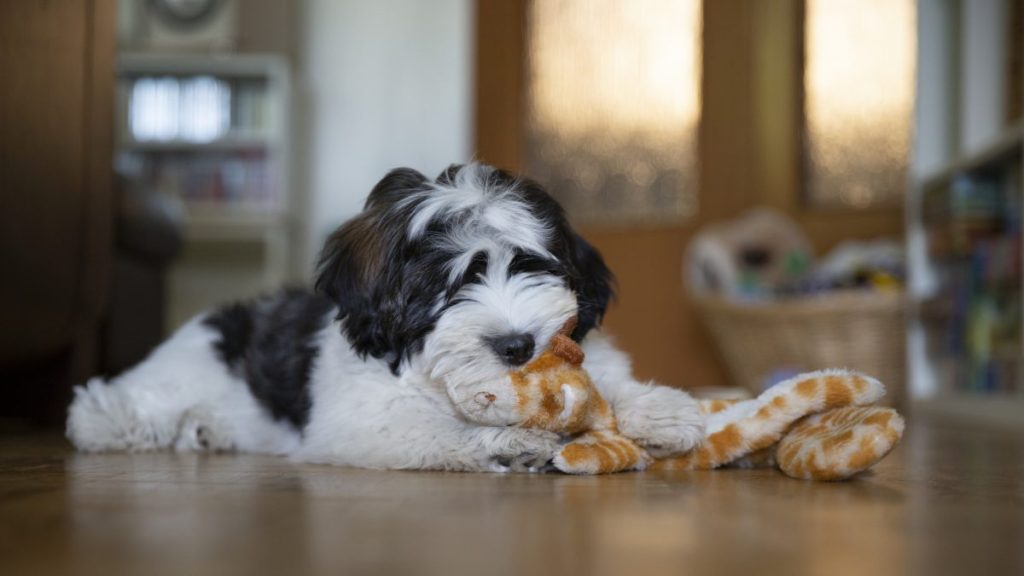Famous for their quick bonding with humans and aversion to solitude, the Havanese are house dogs. They make for affectionate companions, often trailing closely behind their owners like shiny-coated shadows. Some may develop separation anxiety and require company. However, with proper training to minimize excessive barking, these little canines thrive in apartment settings.
Do Havanese make good house dogs?
The Havanese form strong bonds with humans and prefer not to be left alone, often shadowing their pet parents closely. Some Havanese may experience separation anxiety and struggle with extended periods in isolation. With proper training to manage excessive barking, these small dogs thrive as apartment companions.
In addition, the Havanese exude affection towards everyone, from strangers to children, other dogs, and even cats. However, the dog’s family receives most of the adoration, as Havanese prefer to remain glued to their owner’s side whenever possible.
However, this devotion can lead to anxiety when left alone, emphasizing a preference for being a house dog rather than being left in the backyard. Bred to provide companionship to affluent families in Cuba, the Havanese’s Velcro-like personality reflects an innate desire for human connection.
Are Havanese suitable for apartment living?
Despite its small size, the Havanese possesses a considerable amount of energy that requires regular exercise. A daily walk or engaging game of fetch will help keep this breed content. They are suitable for various living environments, including apartments and spacious homes with yards. However, the Havanese is not suited for outdoor living and thrives best as an indoor dog.
Havanese find their greatest joy in the company of his family. While not excessively vocal, they may bark at strangers, so homes with noise restrictions may not be suitable for this breed. Their desire to please their owners typically makes the Havanese easy to train, with basic obedience training, starting with puppy classes, being advisable.





